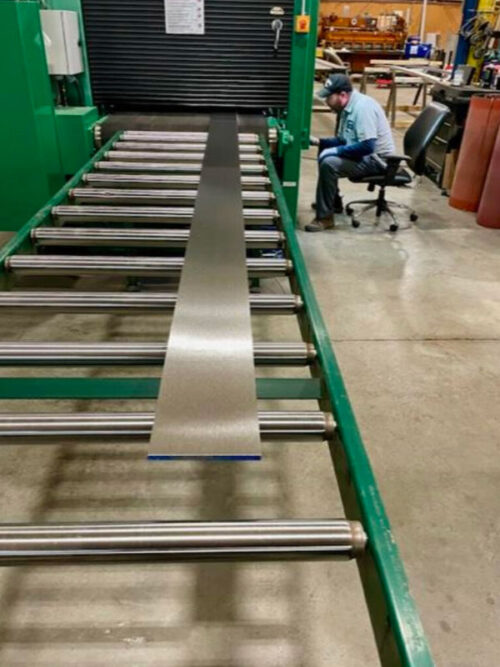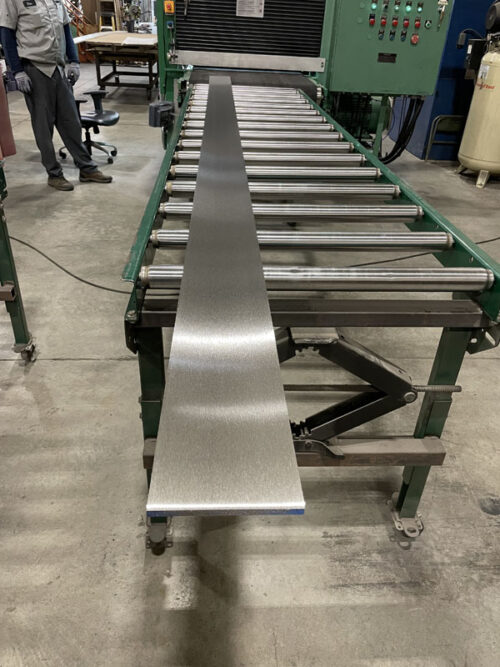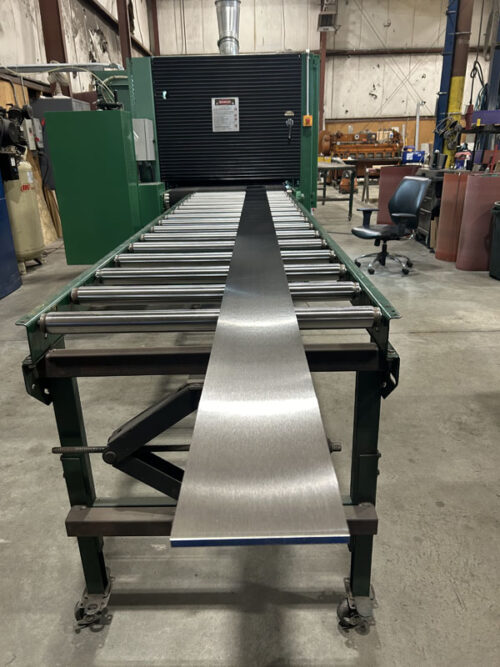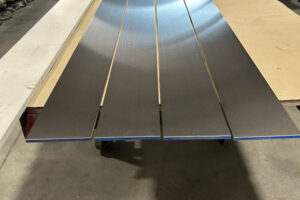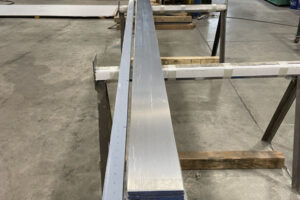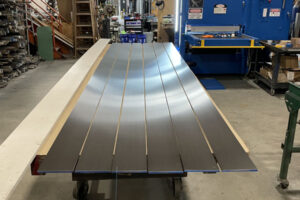About Metal Flat Bar Handrails
Handrails provide safety, structure, and aesthetic elements for walkways, stairways, platforms, and passageways. They are used in recreational, commercial, industrial, and residential settings. Flat metal bar stock is a popular choice for handrails, and it is available in many materials, widths, thicknesses, and lengths.
AAA Metals supplies a range of bar stock materials for flat bar handrail applications, along with grinding, polishing, and finishing capabilities to meet your requirements.
See the start to finish of polishing a 3/8” x 6” x 150” Long Flat Bar in Grade 304. Flat bar handrails can be fabricated from many types of metal depending on the design, appearance, and function of the railing. Metal Types Common materials include, but are not limited to: Stainless Steel Grades Available When choosing a grade of stainless steel for a handrail project, consider environmental conditions, including exposure to harsh weather, saltwater, or other extremes. The two most common options are 304L and 316L. Both are strong and resistant to heat, abrasion, and corrosion due to their chromium and nickel content. They are also austenitic metals, meaning they are non-magnetic and cannot be heat-hardened. Both of these grades of stainless steel resist weld corrosion as well. For a flat handrail for stairs or other flat bar handrail applications, the primary difference between the two comes down to the level of corrosion resistance and cost. Molybdenum is added to 316L stainless steel, which enhances its corrosion resistance. It is considered a marine-grade material and is especially useful for coastal applications near saltwater. While 304L has a very similar chemical makeup, its lack of molybdenum lowers its resistance to particularly corrosive environments. It is generally less expensive than 316L. Horizontal flat bar railing systems are used in many settings. Industrial and utility facilities use them indoors and outdoors to keep workers safe on elevated walkways or grates, and on stairways. Commercial buildings have railings on staircases and walkways as well as architectural features like balconies, landings, and other fall-hazard areas. Recreational facilities also use flat handrails on footbridges, trails, and stairs. In addition to safety, handrails add structure to vertical slats and bars in balustrades and other barriers. Handrails can be designed to be unobtrusive, sleek and modern, or highly decorative, depending on the application. Some specific examples include: AAA Metals supplies flat bar stock material for handrails and other applications in a variety of materials including stainless steel, aluminum, brass, titanium, and others. We also provide plates, rings, discs, forgings, and pipe and tubing from stock, in mill form, polished, or in precision cut pieces. Our capabilities include face, edge, and OD polishing; grinding; laser and water jet cutting; and precision sawing. Request a quote today to speak with a team member about your next railing project.Types of Metals & Grades Used for Flat Handrails
Flat Bar Handrail Applications
Quality Metal Flat Bar Handrail Supply From AAA Metals


